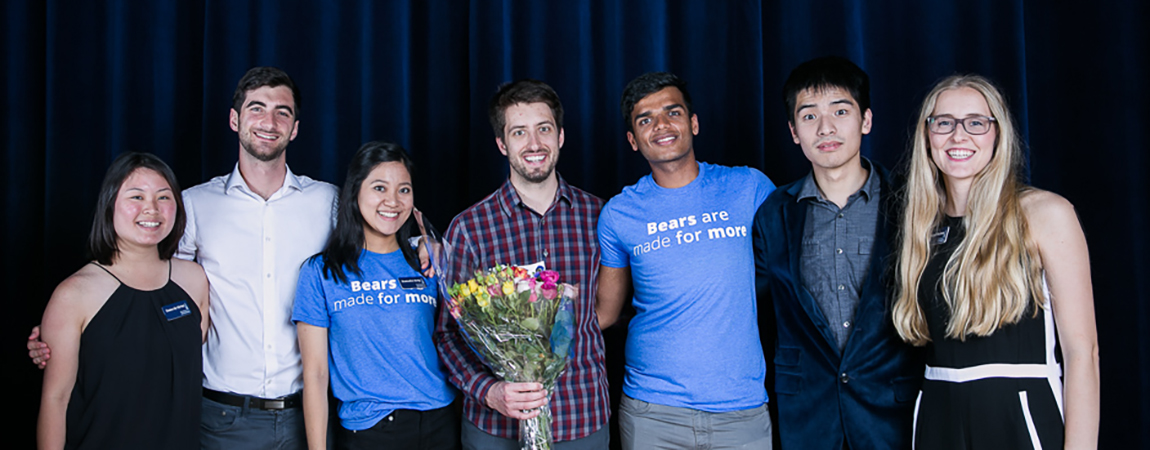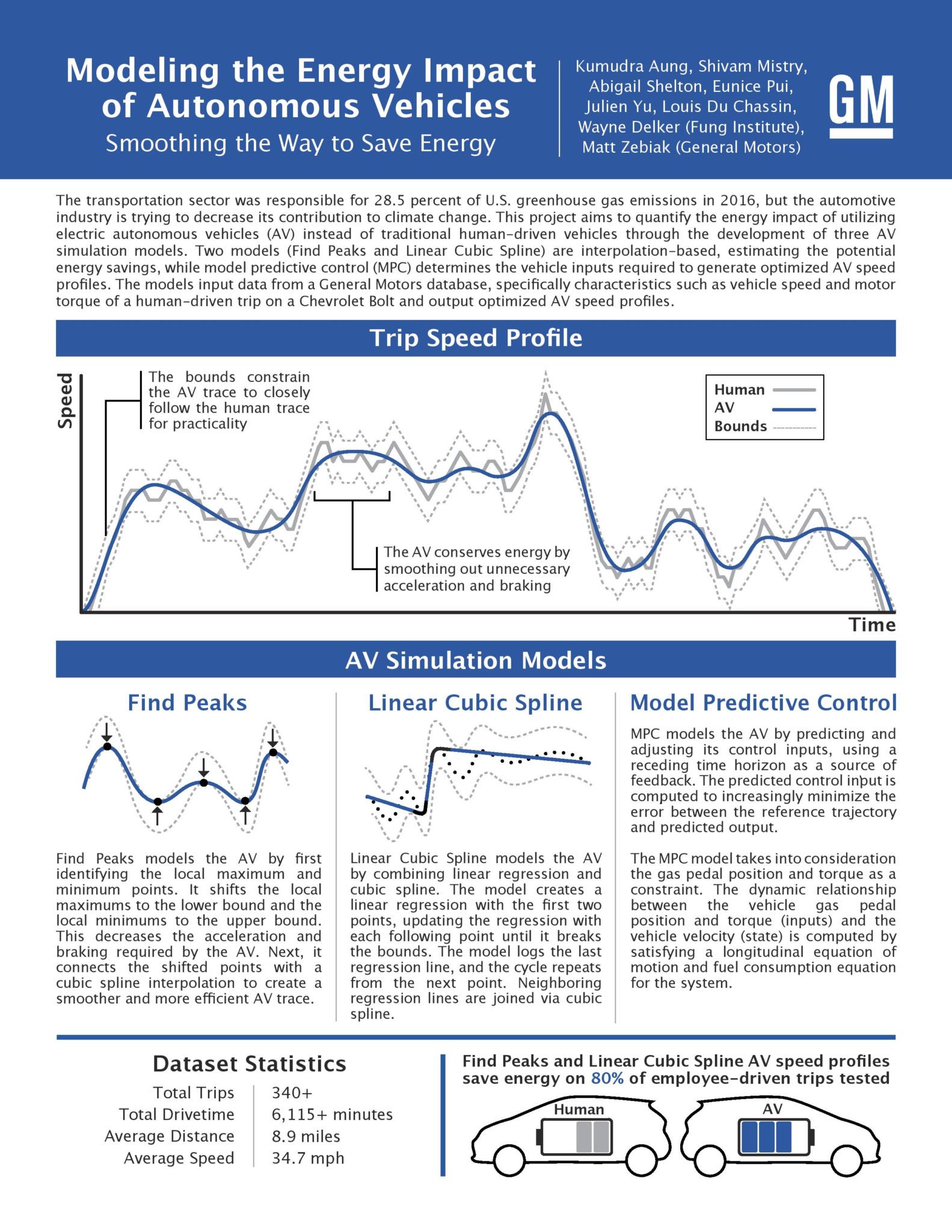Smoothing the Way to Save Energy
Team: Eunice Pui (IEOR), Abby Shelton (IEOR), Shivam Mistry (IEOR), Louis du Chassin (ME), Kumudra Aung (ME), Julien Yu (IEOR)
Advisors: Matt Zebiak (General Motors), Wayne Delker (Fung)
The transportation sector was responsible for 28.5 percent of U.S. greenhouse gas emissions in 2016, but the automotive industry is trying to decrease its contribution to climate change. This project quantified the energy impact of utilizing electric autonomous vehicles (AV) over traditional human-driven vehicles through the development of two AV simulation models. The models input characteristics such as vehicle speed and motor torque of a human-driven trip on a Chevrolet Bolt and output optimized AV speed profiles. Two different models were designed and tested on data from a General Motors database: an interpolation model estimates the potential energy savings and model predictive control (MPC) understands the vehicle inputs required to generate optimized AV speed profiles.
Goals and Aims
The transportation industry contributes nearly a third of greenhouse emissions. This project aims to quantify the emissions of electric autonomous vehicles (AV) as opposed to traditionally human-operated transportation, in an effort to direct the industry toward eco-friendliness.
AV Simulation Models
- Find Peak Models reduce upper bounds and grow lower bounds to minimize to acceleration and braking, which all in all creates a smoother and more efficient AV trace.
- Linear Cubic Spline models the AV by combining linear regression and cubic spline.
- MPC models the AV by predicting and adjusting its control inputs, using a receding time horizon as a source of feedback. The MPC model takes into consideration the gas pedal position and torque as a constraint.
Results
Find Peaks and Linear Cubic Spline AV speed profiles save energy on 80% of employee-driven trips tested.
← View all Capstone Projects




